Hilti volunteers building houses for families in need
With Engaged Beyond Business (EBB), Hilti’s corporate volunteering program, every region has amazing local projects running. Today, we want to focus on Bea’s work: The international EBB projects “building houses”. Back in 2014, the Hilti Foundation accidentally learned about a house building project in Bosnia. "Three months later, we actually went down there with a group of apprentices from Hilti Plant 4 in Austria and after one week we had built two houses", recalls Bea. In this interview, Bea gave us interesting insights into the house building projects and EBB.
Engaging beyond business: One team, one week, one house
Bea – Beatrix Bättig Staud – is well known in the Hilti world, since she has been with the company for many years. Before she joined the Hilti Foundation in 2011, she held different positions at the Hilti Group headquarters in Schaan and people know her from initiatives like ET&A raffles, “Monaragala” and especially for the housing projects in Bosnia.
The very beginning of corporate volunteering at Hilti
End of 2004, I was a member of the International Crisis Team, when that tsunami destroyed parts of Southeast Asia and killed many people. The Hilti Family and the Hilti Group wanted to help, and we made a big donation to the Red Cross, but some of our employees wanted to do more. Egbert Appel, heading the international crisis team back then, asked me to look for a social project that would suit Hilti. So, we started “Monaragala” in Sri Lanka in cooperation with the SOS children's village. This project offers vocational training for young people in need, providing every year around 100 teenagers a good professional education, such as baker or electrician, which helps them to live their own life. You can even call “Monaragala” the first Engaged Beyond Business project. Probably, because of that project, I got the chance to join the Hilti Foundation in 2011.
How did the International EBB housing projects start?
The housing projects began in 2014, when we accidentally learned about a house building project in Bosnia. Three months later, we actually went down there with a group of 12 apprentices from Hilti Plant 4 in Austria and 4 coordinators.
It was a great adventure because neither me, nor all these young people, have ever been to Bosnia. We just took two little vans, drove for hours and started building the next day – without really knowing what to expect or being able to communicate with the locals. Only with Namir, the head of our partner organization “House of good tones”, we could communicate verbally, with the rest, we had to be creative. But after a week, we had finished two houses! Back home, all those young people were absolutely passionate, and we decided to include that house building part into their educational program. Although, it’s not mandatory, no one has missed that trip so far.
What about the stakeholders’ roles? How are the EBB international projects organized?
The Hilti Foundation, basically, pays for the building material of the houses and organizes everything around the trips. The volunteers’ travel expenses are covered by the Hilti Group, knowing that those projects are also a great tool for team building.
Families who apply for a house, need a piece of land, which they usually get from their families or the community, and have to build the foundation of the house. The future owners further contribute in cooking our lunch, so we eat all together at the site: The workers, the Hilti volunteers and the family. And House of Good Tones provides a working team of three people for each house, who know how to work with wood and how to build a good and safe house quickly.
Is it just Bosnia, or are there other regions or countries you go with your groups to build houses?
We started in Bosnia, together with our partner and after a heavy earthquake in Croatia a couple of years ago, we also began to build and finance houses there. Additionally, we are partnering with Habitat for Humanity for a similar project, building duplex houses in Romania. Since we would not fly in people from other continents to Europe for such team- and house-building initiatives, we have plans for roll-outs to other regions. Currently, we are working on finding a solution for the Asian region.
How have your projects developed over the past years since you’ve started building houses?
Well, we began quite naïve: We just went and built two houses. However, the concept is still the same. For Bosnia and Croatia, the ideal team size for building one house in a week is around seven people. That’s how we managed to build 110 homes since 2014. Since the house has a wooden structure and there is no prefabrication, we have to cut the wood and build the frame, adding one piece to the other. We put tiles on top of the roof, install windows and a stainless-steel chimney, we mount the insulation and that’s it. We don't do electrical installation or plumbing. That requires special experience and the wood needs to be really dry, before the finishing can be done.
In Romania, it’s a bit different. Building the duplex house requires a team of 40 people. We as Hilti provide 20 volunteers and our partner brings in another 20 people, so that at the end of one week, also a duplex is ready for the interior work. You see, it’s always the same: one house per group per week.
Highlights of eight years house building in Bosnia
If you go to Srebrenica in Bosnia, you will be confronted with its special history. Typically, we start with a visit to the memorial. That’s impressive, and facing history can be very tough. It makes you think. In the afternoon, people start to work at the site. You can feel their anger about what happened during the war. They don't talk. Or they can’t. They just work and nail those nails in. One by one. That first evening is always a long evening because people feel the urge to talk a lot. That’s what we also want to achieve: Showing our people that there are other realities existing. Of course, we also have fun during that week and our volunteers learn that even in situations where history comes back so intense, you still can have great fun.
Since a few years, also the outperforming teams go to Bosnia as part of their two years education of excellence with Hilti. Once we bumped into each other with two of them, and they told me: “You know, within these two years of education, the Bosnia experience was the one with which I grew the most personally.” This is great. I'm pleased, when people come back knowing that life can be different and appreciating what they have.
What’s up next?
This year, we already built six houses in Croatia, and we have planned to build ten duplexes in Romania, which means 20 houses. In Bosnia, the original plan showed like 20 houses, but we probably will end up with 26 to 28.
What follows, is not really new. It's building houses for people in need. Just reaching more volunteers in different regions. We had this good idea some years ago, and it is still a great concept. I just want to make sure that it remains like that because this house-building initiative is not like a classical team building event in a nice retreat. It's a combination of many things, and it has a real purpose: It's team experience, it's giving back, it's contributing, and it's hard work.
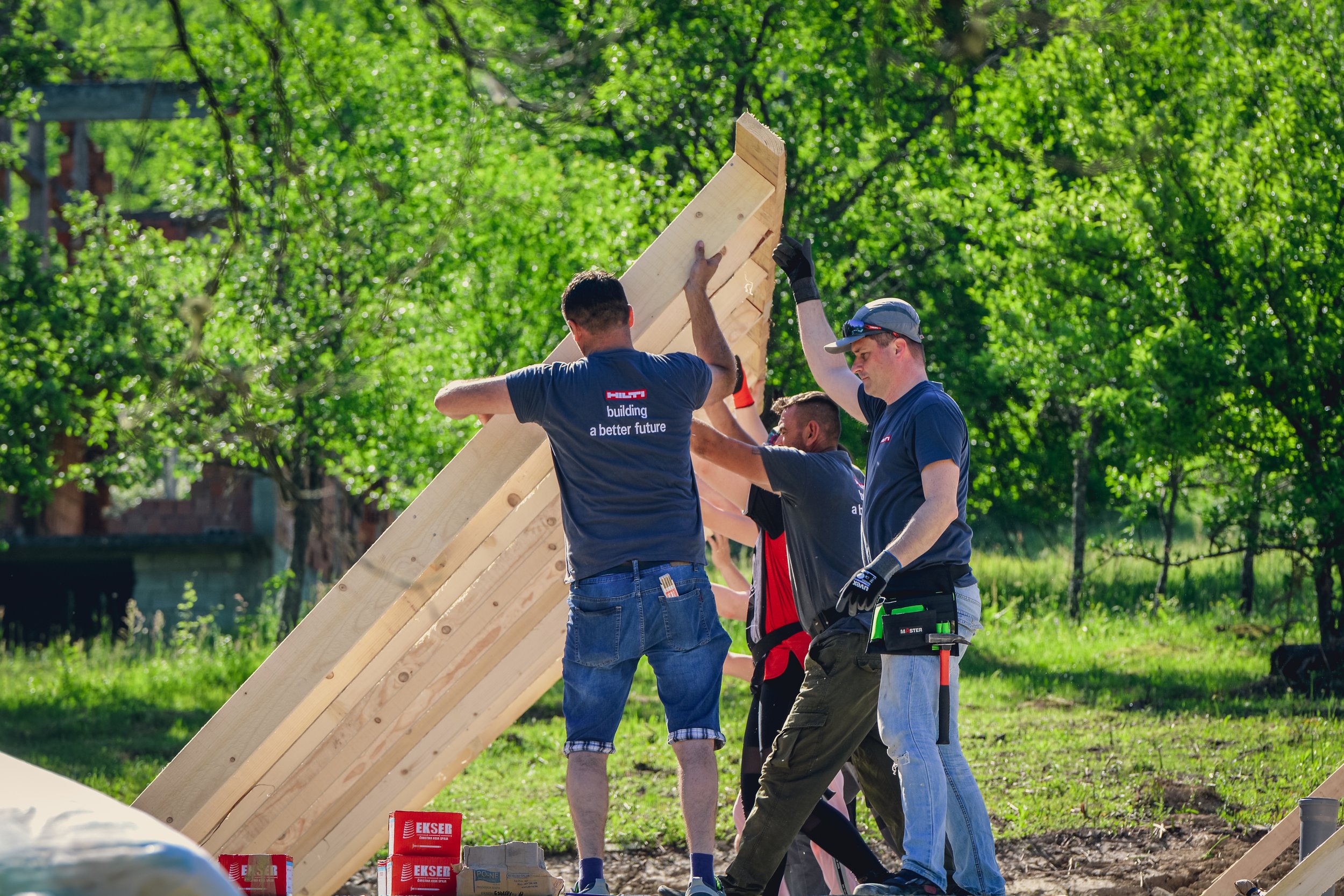
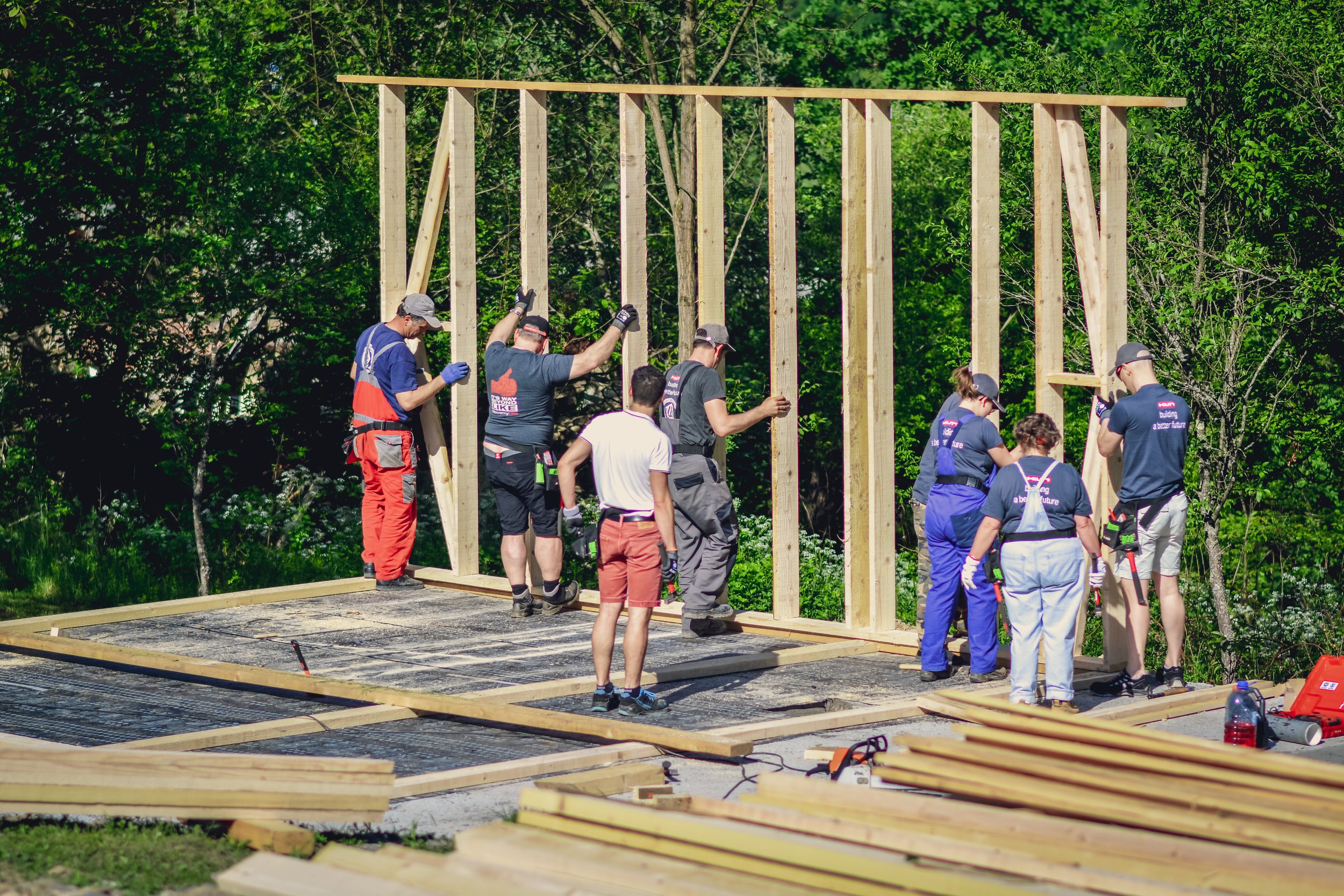
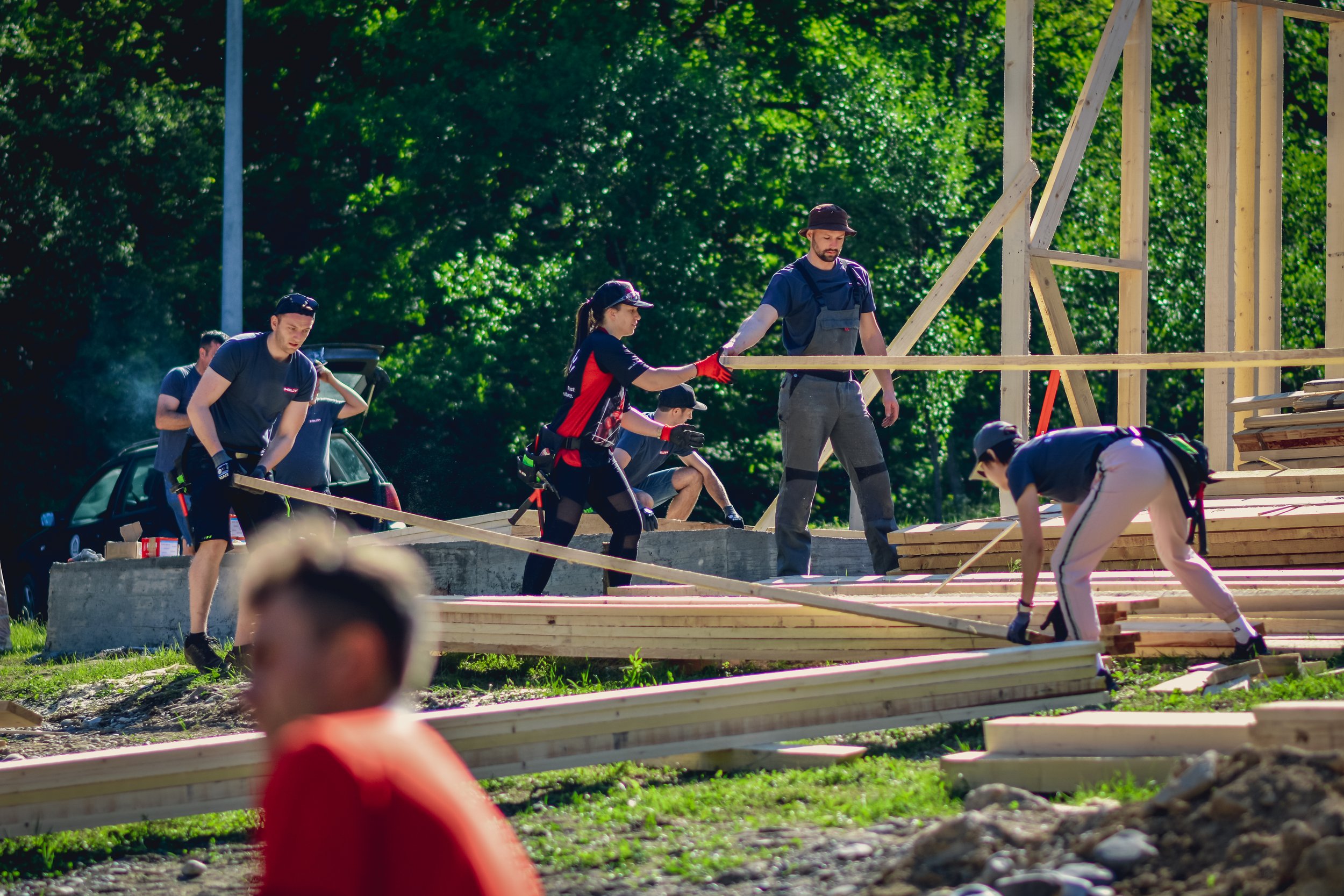
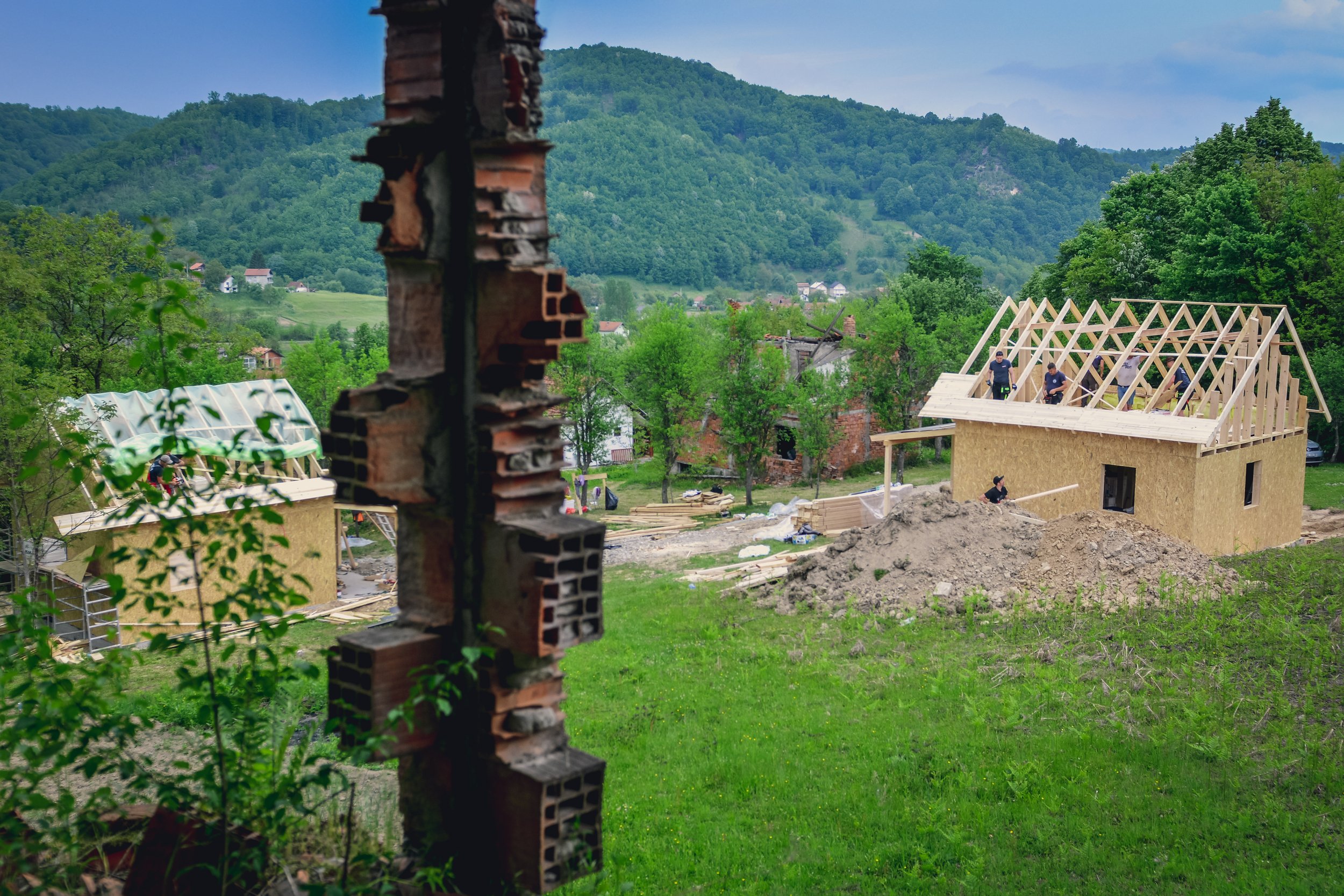
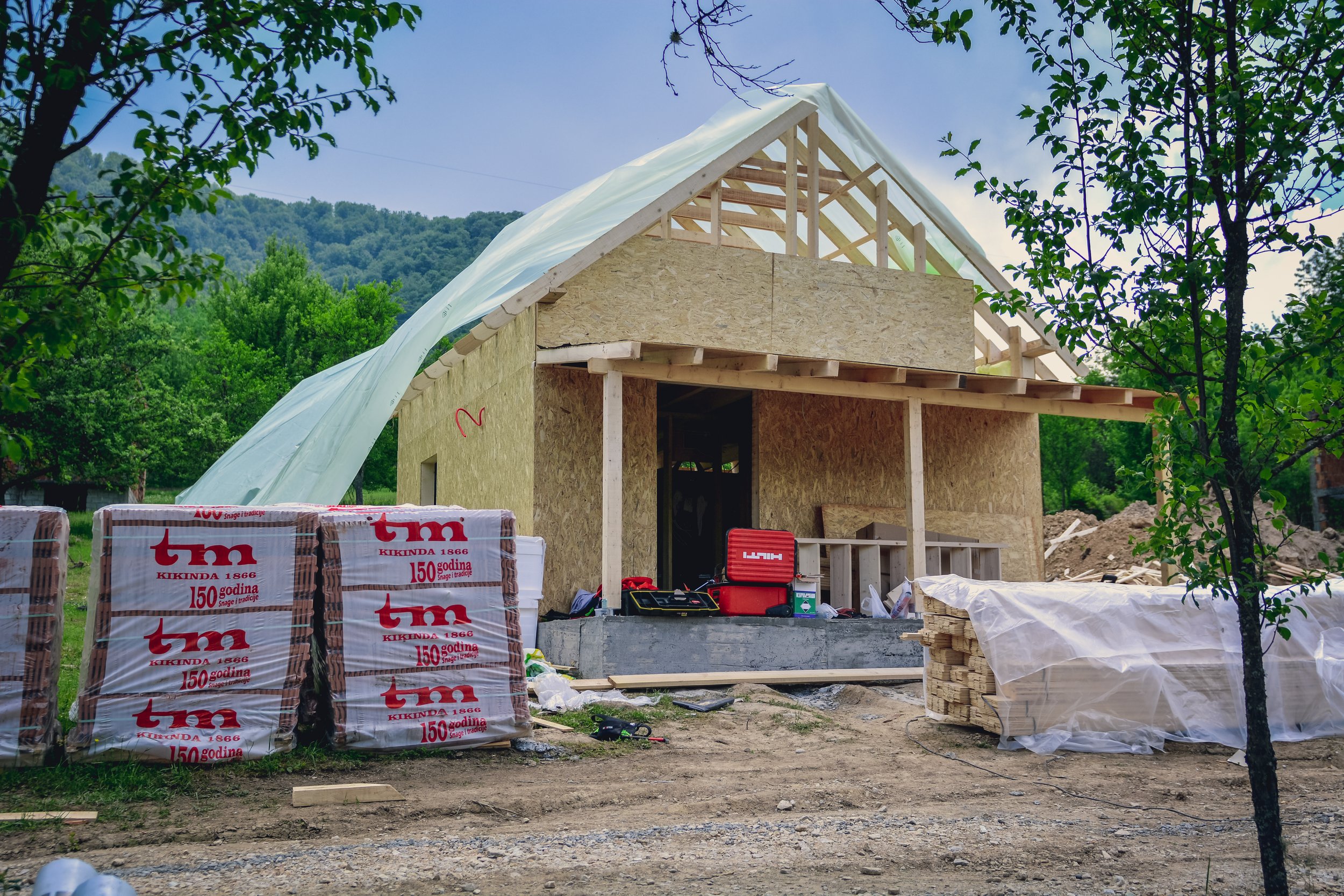
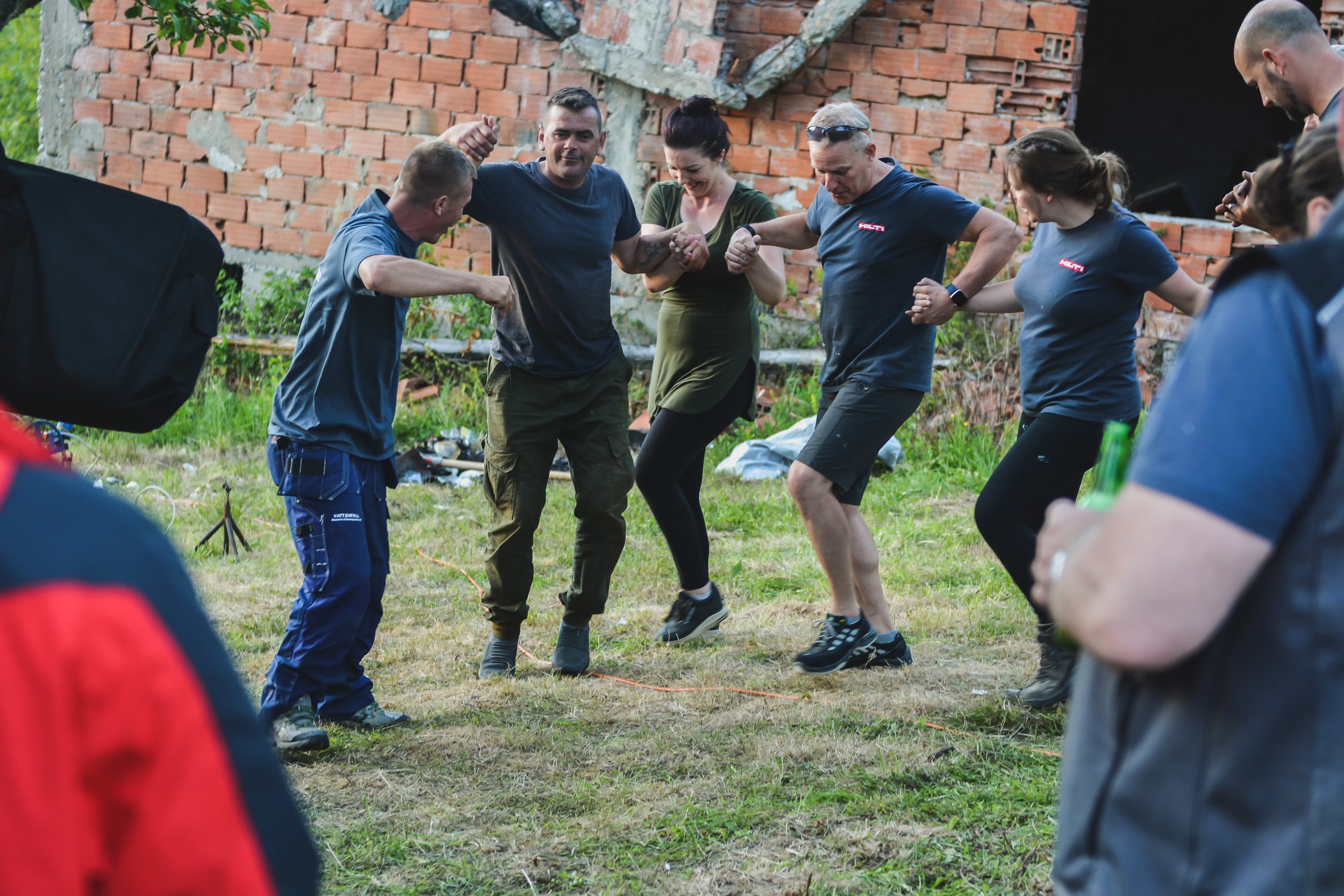
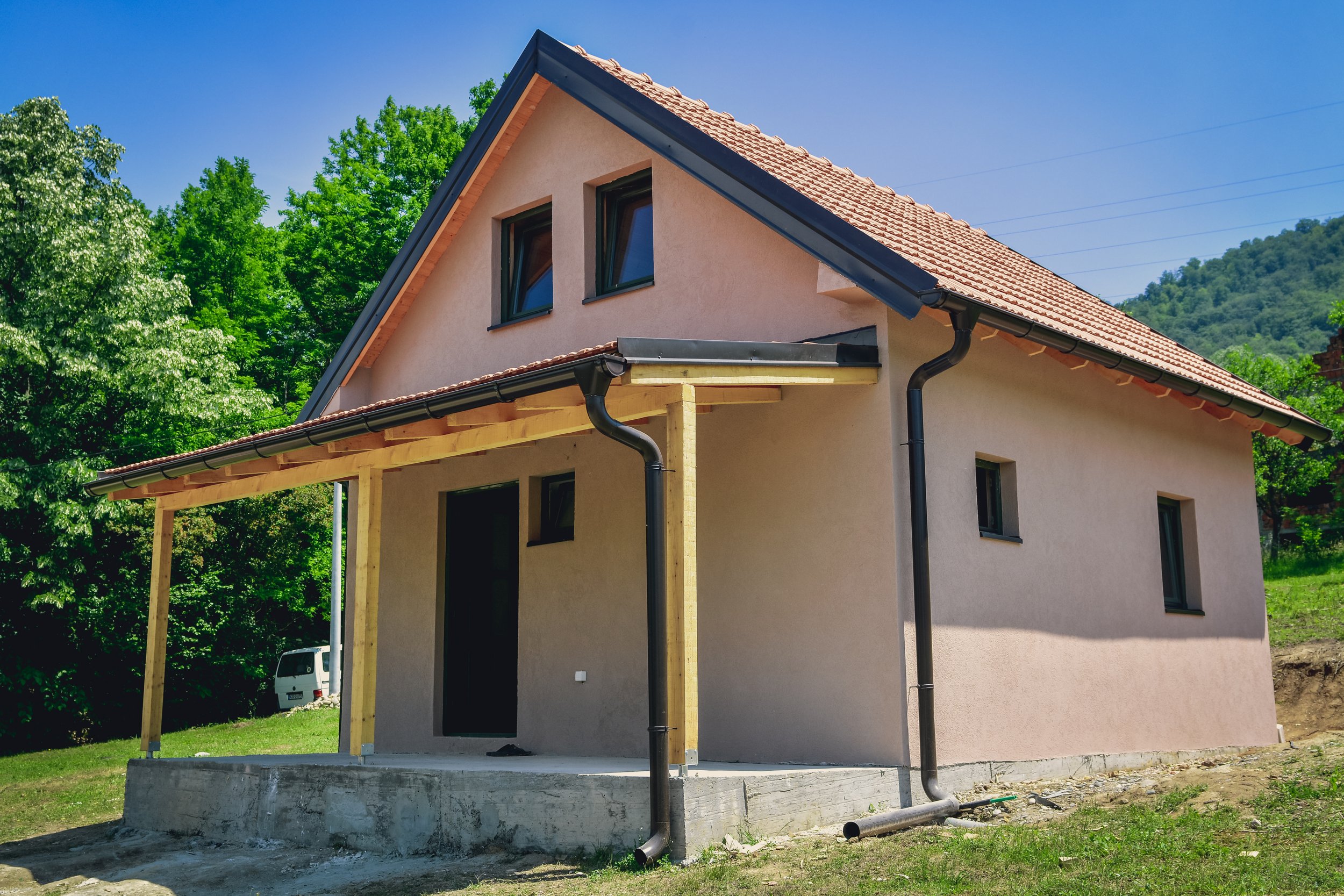
What keeps you motivated?
That's a good question. There are many reasons. One is, I really like Hilti people and I like getting to know them also from a different side than just the business one. Another is, that I got very much attached to the people in the Balkan. I like it being there and of course it's wonderful bringing people to work on a house and then, at the end of a week, handing it over to a family. Of course, it gets tough, when I stay there for some time. After three weeks in a row, I'm exhausted and glad to come home. But I really do love this work. It's great.
Facts & Figures
From the first two houses in 2014 until end of 2021, that’s what has been achieved:
488 Hilti volunteers
17’568 working hours
112 houses
1’456 tons of wood
560’000 nails
72’800 tiles
784 windows
334 beneficiaries, and families for sure have grown meanwhile
In 2017, three Hilti team members have financed and built another two houses together with friends during their holidays.
“Engaged Beyond Business” Corporate Volunteering Program
For decades, Hilti team members have shown great compassion by contributing to the communities they live and work in. As a socially responsible company, Hilti wants to support and encourage team members’ social commitment through the corporate volunteering program Engaged Beyond Business. The program was founded in 2020 together with the Hilti Foundation. The goal is clear: to provide every single Hilti team member worldwide with opportunities to participate in social initiatives beyond business.


